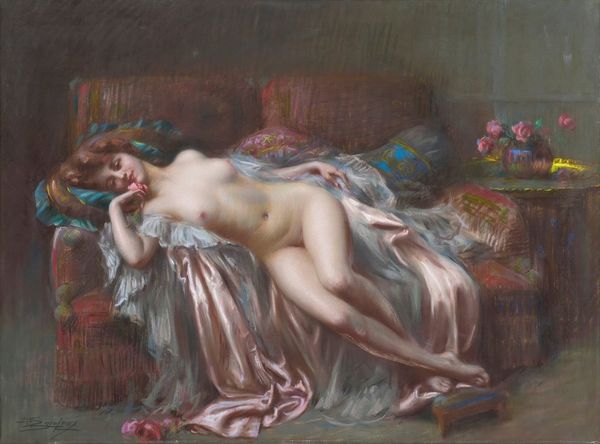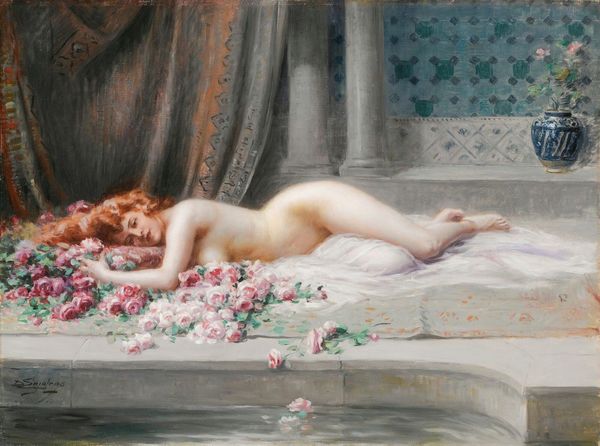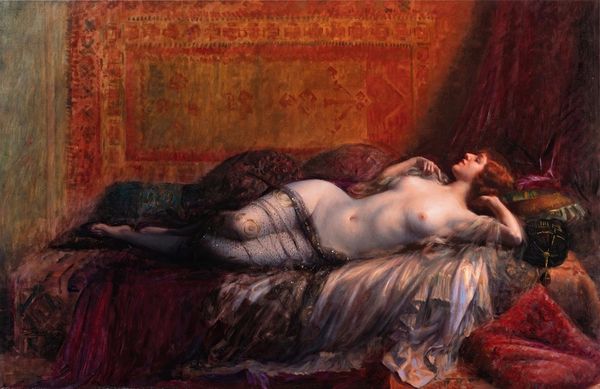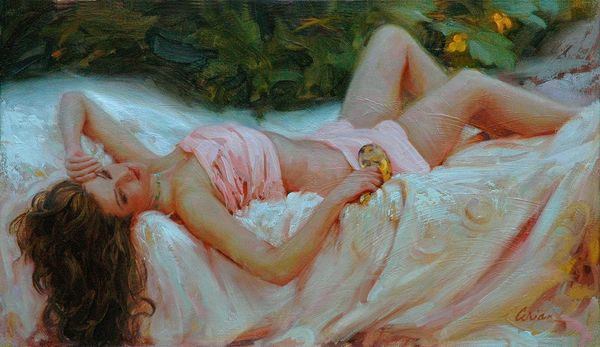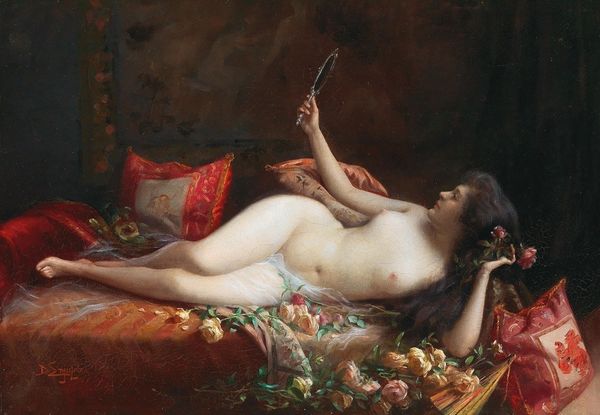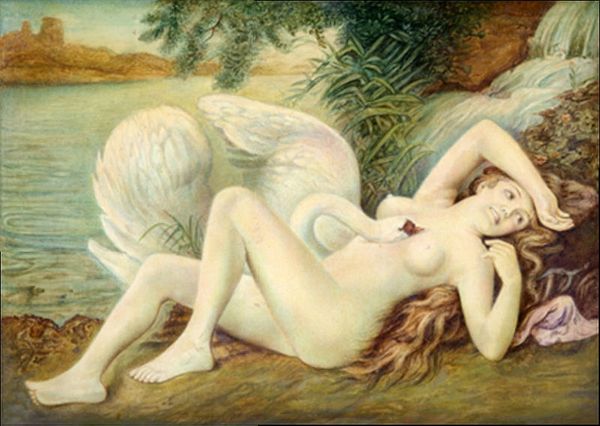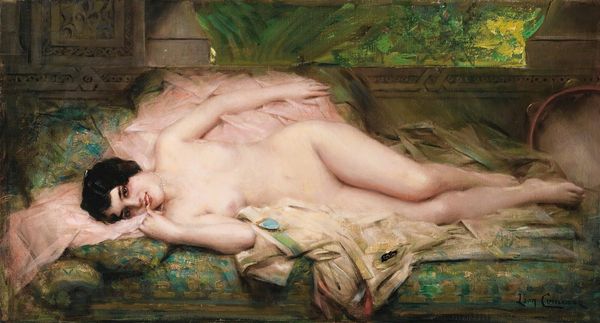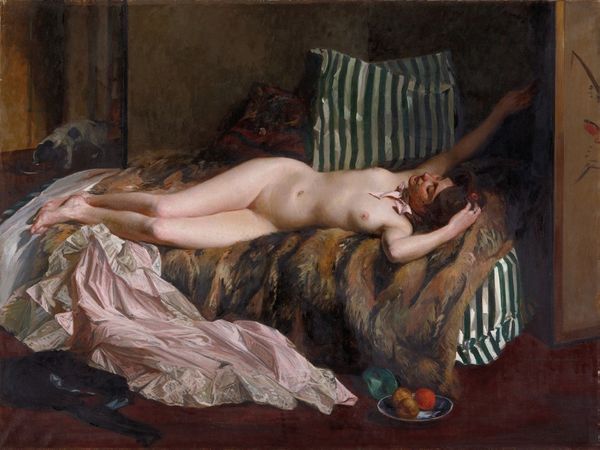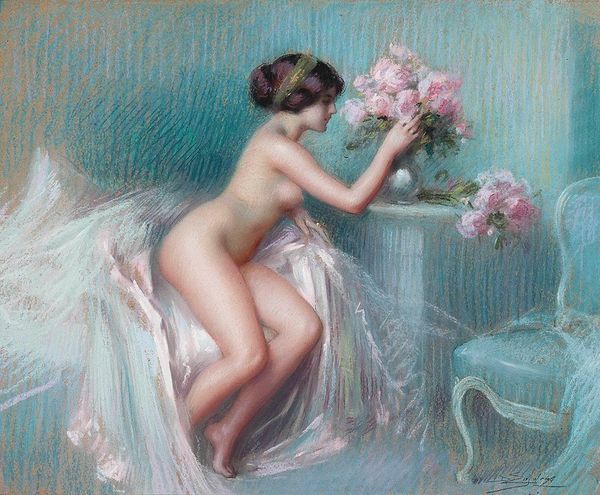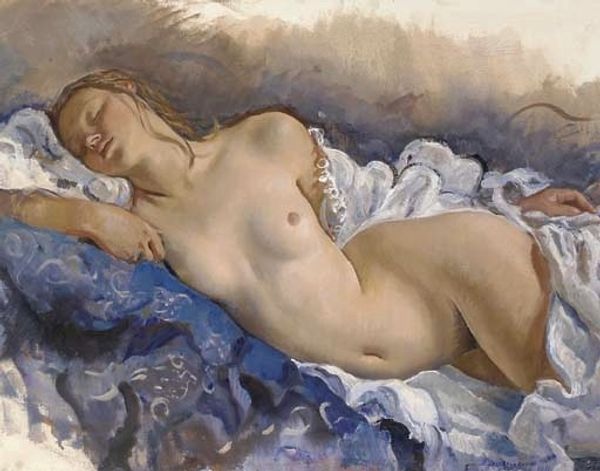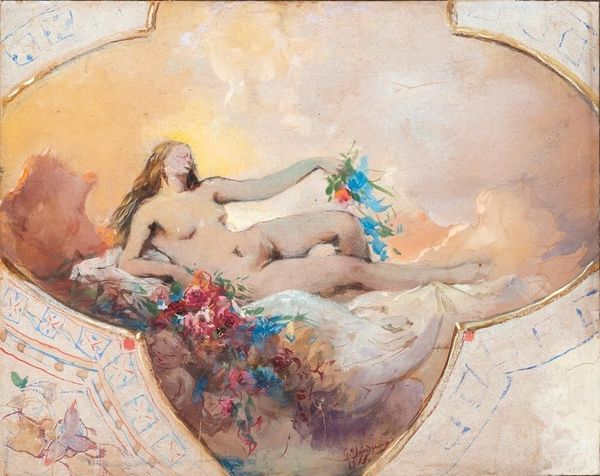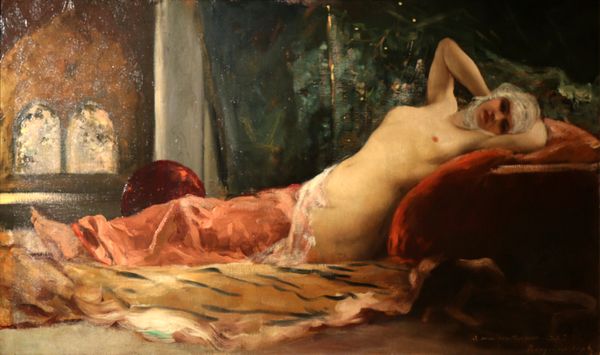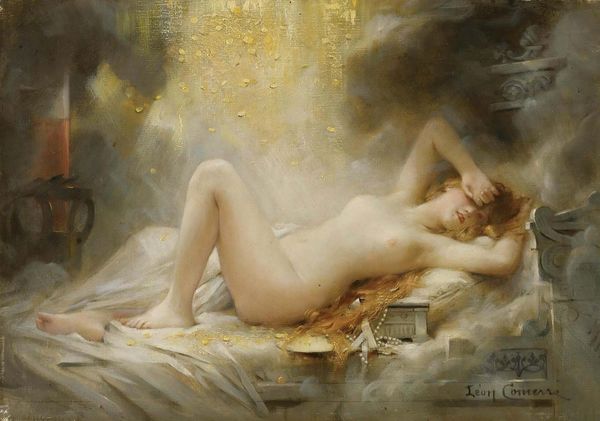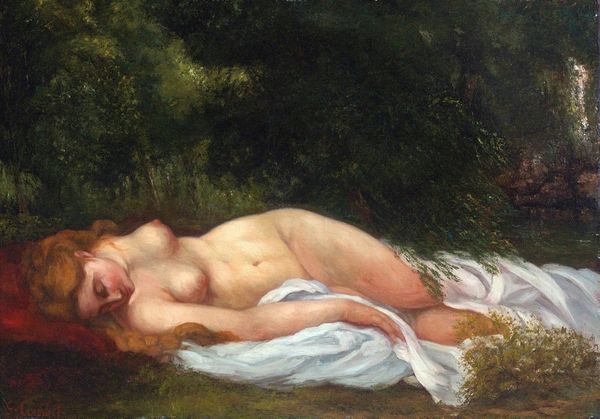
painting, oil-paint, impasto
#
figurative
#
painting
#
oil-paint
#
figuration
#
oil painting
#
impasto
#
neo expressionist
#
romanticism
#
painting painterly
#
genre-painting
#
nude
Copyright: Public Domain: Artvee
Curator: What we have here is "Nu Aux Roses," an oil painting by Delphin Enjolras. It depicts a nude woman reclining amidst roses. What strikes you initially about this work? Editor: Well, immediately the sheer romanticism overwhelms me. It feels almost saccharine, that profusion of pink and the hazy light. Is it intentionally dreamlike or just…soft? Curator: I think we have to consider the role of romanticism and its cultural function at the time. Enjolras, though his exact dates are unknown, falls into a lineage that's actively constructing ideas of femininity, beauty and escapism from harsh realities of that era. It’s not just softness, it’s a specific projected ideal. Editor: So, are you suggesting it functions as a kind of visual opiate for its intended audience? Does the abundance of roses and the sleeping figure serve as symbols within this constructed fantasy? Curator: Precisely. The roses can symbolize love, beauty, but also the transience of both. And the sleeping nude? Potentially representing innocence, vulnerability, or even suppressed desire within a restrictive societal framework. This piece reflects a very particular male gaze and its effect in constructing the idealized female figure for the consumption of wealthy patrons of the art world, it must be examined from that standpoint. Editor: That's a powerful perspective. Viewing it through that lens makes the artist's technical choices—the almost cloying sweetness of the color palette, the idealized body—less aesthetic and more political. How the social constructs affect an artist is visible through such pieces of work. Curator: Exactly. And the presentation! It seems very relevant if we acknowledge such artistic output existed mainly thanks to public support, to show it is more about image creation, a social representation of beauty than real interest for the human experience. The historical and political implications of that fact is what interests me more than the beauty itself. Editor: I see that so clearly now. What once seemed just a pretty picture of its time is suddenly complex, a negotiation between artistic vision, commercial necessity, and ideological frameworks. Curator: Art like this pushes us to recognize the role art has in reflecting and shaping norms, we can no longer look at any work the same, dismissing "taste", "inspiration", or "subjective opinion" as explanations without further analysis. Editor: It leaves one reflecting not just on what art *is*, but on how social expectations shapes its making.
Comments
No comments
Be the first to comment and join the conversation on the ultimate creative platform.
